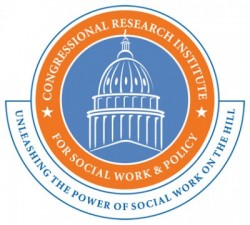More than 1200 South African social workers packed the auditorium at the Durban International Convention Centre Tuesday, March 24th for South Africa’s first Social Work Indaba. The event, sponsored by the Department of Social Development (DSD) which is somewhat akin to the U.S. Department of Health and Human Services (HHS), brings together DSD ministers and officials, academics and researchers, nonprofit administrators, policymakers, and frontline social workers for a discussion about the state of the social work profession in South Africa and where it needs to go. I am here with a delegation from Howard University where I taught policy and research for eight years in the School of Social Work. The Howard University Republic of South African project or HURSA, launched in 2000, is led by Dr. Jean Bailey, a graduate professor in human development and the director of the Center Drug Abuse Research.
The term “indaba” is derived from a Zulu language word meaning business or matter. It has been used to denote important gatherings in southern Africa. This is the first such meeting of social workers. The leadership of the Ministry of Social Development are clear that the Social Work Indaba is more than just a gathering—it is a gathering with a purpose. The goal is to culminate the three-day meeting with an action plan for revitalizing social work in South Africa based on the reports and recommendations of six commissions: social work supervision and management; working conditions and retention strategies; social work practice; promoting integration and multi-disciplinary practices; professional and ethical considerations in social work; and capacity building of social work practitioners.
The first day was given largely to setting the theme of the indaba—Building a Caring Society. Together—and giving high-ranking officials the opportunity to have their say. The Minister for Social Development, Ms. Bathabile Dlamini, gave the opening address during which she passionately made the case for the need to revitalize and strengthen the social work profession in South Africa before rushing off to accompany President Jacob Zuma on a visit to one of the townships. Preceding her was a poignant speech by Ms. Hendrietta Bogopane-Zulu, a Deputy Minister of Development who is legally blind. She told her story of coming age as a blind person and how she had to fight to become as social worker. She stressed the need for the profession of social work to create specializations that address the needs of blind persons and people with autism. Two of her three daughters are blind.

I spent some time talking policy and research with Dr. Wiseman Magasela, the Deputy Director General for Research and Policy with the Department of Development about the challenges of generating resources for social services in South Africa. It was interesting to compare the struggle we have in the United States with those he faces in South Africa. For American social workers, our often boils down to a fight with conservatives and the Republican Party who believe that too much welfare is neither good for the country or the people who get it. South Africa’s struggle is about the sheer numbers of people who are poor after centuries of a brutal apartheid government.
About 45 percent of the 55 million citizens of South Africans live below the official poverty line, about 23 million people. Nearly 60 percent of government spending is devoted for the care of its indigent citizens. Poverty is declining but most people are getting enough support to barely eke out an existence. The Department of Social Development recognizes the importance of social workers in its drive to raise the living standards of South Africans. There are 23,000 social workers in South Africa which is about one-fifth the number of social workers per capita in the United States. They are looking to more than double the workforce in the next decade. Dr. Magasela is not sure how they will generate the resources needed to sufficiently educate and train another generation of social workers. But he knows it needs to be done.
As an American, I have grown to be cynical about and weary of people in power professing concern about the circumstances of the poor and most vulnerable citizens in our society. When House Ways and Means Committee Paul Ryan says he has a plan for the poor, one has to surmise he is ready to use a hatchet rather than an axe to make cuts to social welfare programs. But here, you have the sense that the African National Congress (ANC) really cares about the plight of its mostly black impoverished citizens. Let’s not get all mushy. I know that not everyone in power in South Africa is a genuine friend of the poor. However, a significant plurality is and I believe they are enough to make a difference.
I feel blessed to participate in this historic event. I will be working with the commission addressing working conditions and retention strategies talking about how social workers might organize themselves through specializations. I will be reminding them about the importance of training macro as well as micro social workers. Dr. Magasela needs more social work researchers and policy analysts to help make the case for more investment in social development. It is important to have well-trained administrators. I suggested that the DSD not rely solely on government spending but explore building public-private partnerships—that he use the research he is doing to convince the private sector that it is in the interests of all South Africans for them to make strategic social development investments.
Written By Charles E. Lewis Jr., Ph.D
South Africa’s Social Workers Act to Revitalize was originally published @ Congressional Research Institute for Social Work and Policy » Charles Lewis and has been syndicated with permission.
Sources:
Our authors want to hear from you! Click to leave a comment
Related Posts








The best strategy to retain social workers;1 increase our salaries . 2 more in-post training opportunities. 3 educate people about the importance of our profession. We are the drivers to eliminate all social ills.